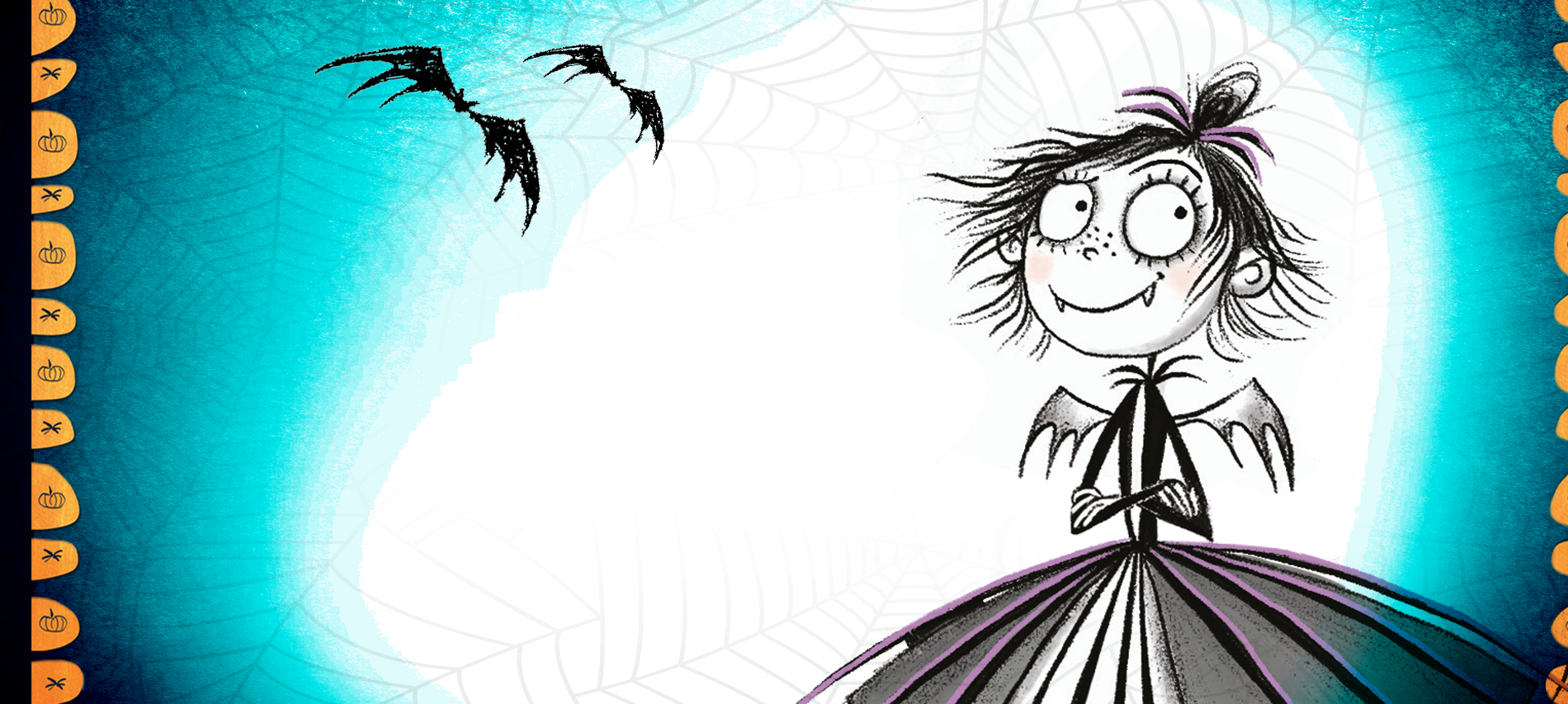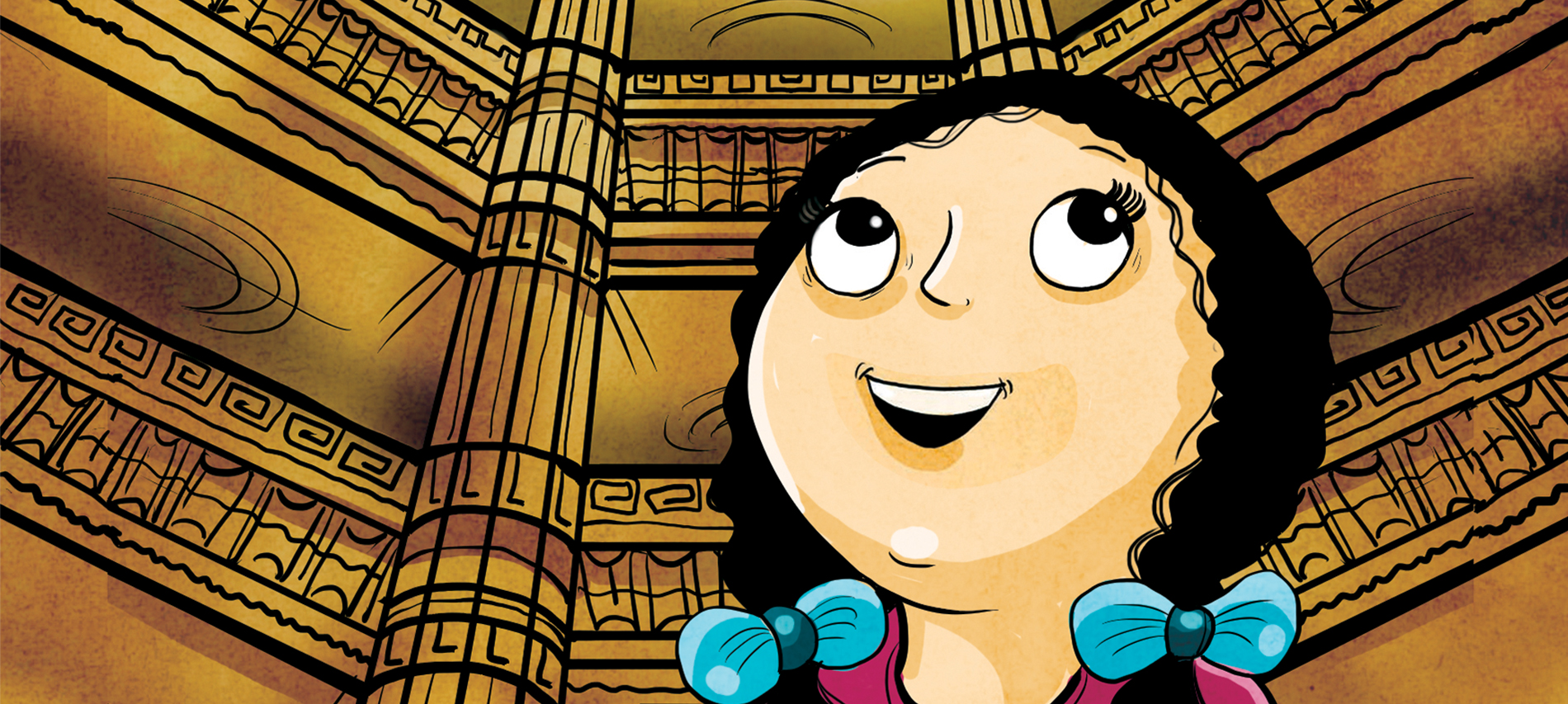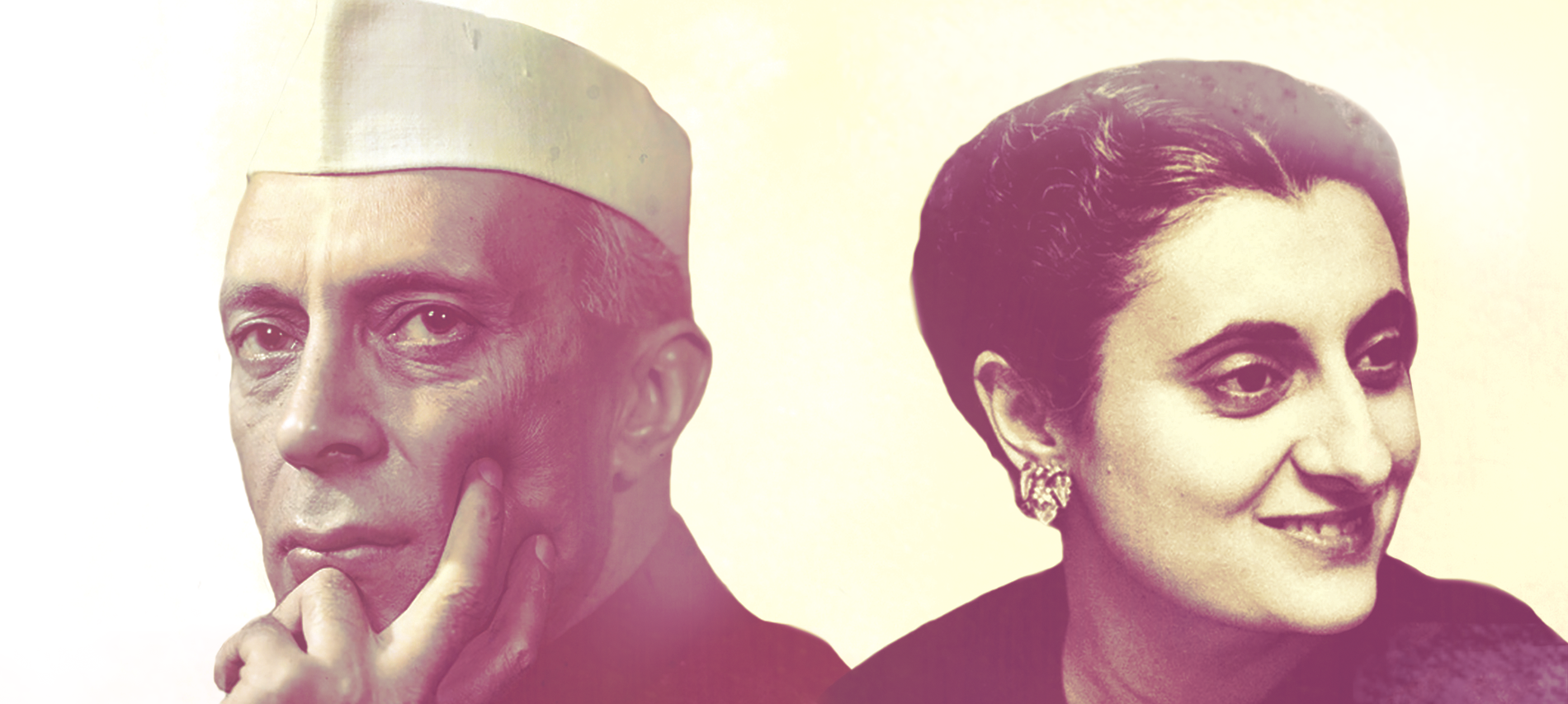Chintamani Dev Gupta is on a trip to a bird camp near Lake Sat Tal! Away from the drudgery of urban life in Gurgaon, Chintamani finds himself near the cool, blue water of the lake and dives in for a swim. But when he emerges out of it, things look different. Where is he?
Find out with Namita Gokhale’s beautiful new novel for your little one, ‘Lost in Time: Ghatotkacha and the Game of Illusions’.
Here’s an excerpt from the book telling you where it all started.
A figure was approaching. He, she, it, was holding a burning branch of wood and breathing deeply. I had slouched down, suddenly tired and drowsy, in a bed of dry leaves. An enormous face came into view a long way above me. I wondered if I was dreaming, but the warmth from the flaming torch seeped into my bones, as did the long, careful breaths of this giant. I sat up bolt upright.
He was sniffing me, and I could smell him too. The tang of leaves and the forest, with a whiff of animal and the scent of human.
‘Who are you?’ he asked in a language I didn’t understand. And yet, strangely enough, I did. Was this telepathy?
‘And who are you?!’ I asked back, the question was put forward in sheer panic mixed with some cunning. I was still trying to take in the awesome size of this Godzilla, and figured my question might help establish a bond with this primeval creature. But then, how would he understand my question, which probably sounded more like a squeal?
‘I am Ghatotkacha,’ he replied. ‘I am the rakshasa Ghatotkacha, born of the lord Bhimasena and the lady Hidimbi. I rule over hill and vale, forest and stream to protect the spirit of the forest and all who live in it.’
I understood this too, through some sort of teleprompter that seemed to have lodged itself somewhere in the left lobe of my brain like a Google Translate implant.
‘I am Chintamani Dev Gupta,’ I replied tentatively. But it wasn’t me speaking at all, perhaps some sort of decoder that seemed to be picking up on signals from my brain. Take control, I told myself, take control, or you will lose this mind game.
‘I am speaking Paisachi, but I am fluent in Prakrit and Sanskrit too,’ the giant replied.
He had huge red eyes that were lit up by the burning torch he held in his hand. But they were kind eyes . . . there was not even a hint of cruelty in them.
‘And don’t worry, I am not trying to take control of your mind!’
Weird, weirder, weirdest. He could actually read my mind! Holy cow! This situation was just impossible. I pinched myself even harder this time, so that I might now wake up from this fast-accelerating nightmare.
It only gets “weird, weirder, weirdest” from here on! You wouldn’t want to miss it! Grab your copy and dive right into the charming world of Ghatotkacha!

Tag: Excerpt
The Lehman Collapse Days, An Excerpt ‘From Lehman to Demonetization’
Tamal Bandyopadhyay is one of the most respected business journalists in India. He has had a ringside view of the major changes that came through in the Indian finance and banking sector in the last two decades. In his book ‘From Lehman to Demonetization’ he tells the epic story of banking in India in the last decade. The book features essays and interviews with stalwarts from the sector like Raghuram Rajan, Arundhati Bhattacharya, and many others.
Here is an excerpt from the book.
On the day US investment bank Lehman Brothers Holdings Inc. filed for bankruptcy, the chief executive officers of six large commercial banks assembled at a south Mumbai hotel to debate a topic close to every foreign banker’s heart: ‘Should India open up the financial sector?’ Y.V. Reddy, former RBI governor, widely known for his views against the opening up of the sector, had retired just ten days before the collapse.
His successor, D. Subbarao, former finance secretary, was to be the chief guest at the conference but he excused himself because he could not have expressed his views on the subject in his new role as RBI governor. Owing to the newsflash that morning, the mood at the conference was sombre and even the traditionally aggressive foreign bankers, who always blame the Indian banking regulator for keeping the doors closed, were restrained in their arguments. The beer tasted flat that evening, the food stale, and a few panellists, including ICICI Bank Ltd’s then managing director and CEO, K.V. Kamath, did not wait for the dinner and left immediately after the discussion was over.
The exposure of ICICI Bank, India’s largest private-sector lender, to Lehman Brothers was $83 million, less than 0.1 per cent of its consolidated balance sheet, but investors rushed to sell the bank’s stock and pulled it down by 15 per cent in the next few days as panic gripped the market. A few other banks, including State Bank of India (SBI) and Punjab National Bank, two large public-sector banks, had a small exposure to Lehman Brothers in various forms.
At a meeting with the executives of Lehman Brothers’ Indian arm and local banks, V. Leeladhar, then deputy governor of RBI, told the US investment bank to close all transactions with Indian banks within twenty-four hours. Lehman Brothers did so in forty-eight hours. It was running a non-banking financial company in India, but its entire capital was invested in government bonds and bank deposits; so the money was safe. Its broking arm, Lehman Brothers Securities Pvt. Ltd, housed in Ceejay House—hemmed in between the Arabian Sea and the glass-walled Atria shopping mall on Annie Besant Road in midtown Mumbai, the most expensive office space in the city—was taken over by Japan’s Nomura Holdings Inc. In October, Nomura also took over Lehman Brothers’ back office operations, which employed 2200 people, in Powai, a western suburb of Mumbai.
The panic did not last long. The global financial system had plunged into an unprecedented liquidity crunch after the Lehman collapse but India shrugged it off relatively easily. The GDP growth dropped to 3.5 per cent in the March 2009 quarter, but in the very next quarter, it rose to 5.9 per cent and by the September 2009 quarter, it bounced back to 9.3 per cent.
We all celebrated how resilient the Indian banking system was. A cautious and conservative regulator ring-fenced the Indian banks by not allowing them to take excessive risk.
However, we celebrated too early. The monetary policy and fiscal stimulus that followed after the collapse to ward off its impact led to a V-shaped recovery at that point, but it didn’t last long; seeds were sown for high inflation and bad assets. It took years to bottle the inflation genie but we are far from sorting out the problem of bad assets.
The first rate cut was announced on 20 October 2008, more than a month after the Lehman collapse and in the next six months, the policy rate was brought down from 9 per cent to 3.25 per cent (lower than the savings bank rate which was an administered rate then); the cash reserve ratio or the portion of deposits that banks keep with the RBI from 9 per cent to 5 per cent; and the floor for banks’ government bond holding from 25 to 24 per cent. Collectively, the cut in the reserve requirement and the opening of new refinance windows pumped Rs 5.6 trillion into the Indian financial system.

How Assam Happened—An Excerpt from ‘The Last Battle of Saraighat’
In ‘The Last Battle of Saraighat’, political campaigners for the BJP in the North-East, Rajat Sethi and Shubhrastha take you behind the scenes of the BJP’s landslide victory in the 2016 Assam legislative assembly elections. In the book, they provide details of the election strategies and explain the rise of the party in the North-East.
Here’s an excerpt chronicling the win of BJP in Assam.
Assam celebrates three different Bihu festivals, each one of which coincides with a distinct phase in the farming calendar. Kati Bihu, the first in the series, is observed in October and is marked by solemn prayers to save the paddy crop from insects and evil sights. Bhogali or Magh Bihu is all about food and is celebrated in January at the end of paddy harvesting period when the granaries are full. The last Bihu in the calendar is called Rongali Bihu or Bohag Bihu, which marks the beginning of the Assamese New Year when the field is prepared for the next season of paddy cultivation. It is the most widely celebrated and colourful festival in Assam.
Every five years, the Assamese farming calendar closely coincides with the campaign calendars of political parties. The body politic of Assam is promised new dreams every time. This interesting tradition was captured in a 1992 song by Bhupen Hazarika on Bihu. Sung to the tune of a lullaby, it makes a plea to Bihu: Please do come once a year and wake up mother Assam, and even in these dangerous times, please O Bihu, come and give the Assamese body and mind its ritual bath.
Bihu is indeed a ‘national birthday—the day of renewal when the Assamese polity takes stock of its past and future’.
In the Bihu of 2016, the electoral curtains were to drop and a new polity was to emerge.
Armouring for the Battle
By the end of December 2015, BJP had almost all the right ingredients in place to project itself as the sole and credible political challenger to the incumbent Congress government in the ensuing assembly elections scheduled for April 2016. Anti-incumbency against the Tarun Gogoi–led Congress government was quickly building up. The BJP now appeared stronger as an Opposition in Assam. It had a face. It had the narrative. The party also had the required momentum to oust the incumbent.
But a deep emotional connect with the people of Assam was amiss. BJP had so far been only a marginal political player in the state and electorate were still finding it hard to relate with the party as its political choice.
On the other hand, the Congress had a well-oiled foundation and a veteran leader in Gogoi, who had led the state peacefully for fifteen long years. Assam has traditionally been a strong Congress bastion. Out of the nearly seven decades of independent India, the Congress was in power in Assam for nearly six decades. Winning Assam would have meant that the Congress was able to hold on to its turfs after its decimation in the 2014 Lok Sabha elections. Losing Assam would have implied a nosedive for the party nationally.
With the political ground that the BJP had covered over the past two years, it could not afford to lose the Assam battle. The next four months of electioneering were critical to tilt the balance in its favour. After the humiliating defeat in Delhi and Bihar, Assam was a test of the BJP’s confidence. It would also signify if there was a sense of trust for the party among the masses and if the Modi wave still reigned high in urban as well as far-flung rural centres of India. For the BJP, it meant finding a foothold in North-east India and marking its presence in a sensitive borderland. For the central government under Modi, Assam, if claimed, would have become a pivot for the Act East Policy. So, for all reasons—political and developmental—Assam was a catch!

Meet Rishi Mathur—An Excerpt from ‘Love Curry’
Pankaj Dubey is the bestselling author of —’What A Loser!’, ‘Ishqiyapa—To Hell with Love’. His latest book ‘Love Curry’ is about three flat mates in London who fall in love with the same girl. This make them arch-rivals but when things take a turn, they don’t find anyone else but eachother to turn to.
Here’s an excerpt from the book which introduces you to one of the flat mates.
He came from Agra—the city of the Taj Mahal, a monument that stood for a timeless love. A monument that simply kept standing when his love had wandered off. No wonder he had left the city and its Mahal. Choosing England instead with all its apparent coldness. He wanted to be away from all that had always been with him. No one knew him here or cared to. But there was a comfort in this anonymity. It was only months after he shifted to house number 104, George Street, that some of his neighbours began to recognize him, or what little they saw of him. For he would leave in the morning and return only after it got dark. He could have been the night watchman for all they knew. No words he exchanged with anyone. No twitch of a smile to a face that looked familiar. His socializing was restricted to giving someone way if they were in a rush.
His name was Rishi Mathur, the guy whose door was locked. The occupant of the third room in house number 104. A house that was almost a subcontinent, harbouring as it did three South Asian boys, flying the flags of India, Pakistan and Bangladesh. Besides the Indian—Rishi—docking in the house were Shehzad from Dhaka and Ali from Lahore.
Rishi in Agra had been quite a talkative fellow. This was a different version. No, the Queen wasn’t to blame for this sudden, sullen silence. At the heart of the matter was a breakup. One he was finding difficult to chew. So he went quiet and fled to England. He had seen people go to London to study or to get rich. But he came to recover. People arrived here with big dreams. He landed with promises—three promises that he’d made to himself. Three promises that were perhaps the opposite of what any other immigrant from India would have made
The first was to stay away from girls—especially the beautiful ones. He could not trust them now.
The second vow was to never return home. He would do all it took to make this island nation his new home. There was nothing waiting for him in India—and absolutely no one that mattered to his broken heart.
Thirdly, he would lie low. No soaring aspirations for him. No growth, no riches. He would not be the next British-Indian industrialist or Indian lord in Parliament. All he would be was a nobody.
It was easy to do the third thing. He simply didn’t need to do much. The limelight ignored him automatically. High denomination pounds stayed away. The few notes he earned kept hopping in and out of his wallet. The heartbroken hero strived for no comeback as a happy success story. All he wanted and got was a corner seat in life.
No one knew what Rishi did, not even his two housemates. Shehzad from Dhaka and Ali from Lahore lived in the same house with him, but in blissful ignorance. Each one had a story of his own that each wished to keep to himself. Though they shared a subcontinent and now a house, the three were reluctant to overlook the fact that they came from three different countries. This fourth country that they came to live in however threw them together in more ways than one. For starters, they got branded ‘Bloody Pakis’ the second they set foot here!
In their three-bedroom house, the room in the middle went to Rishi. Shehzad occupied the one to his left. The Bangladeshi was almost twenty-three, but still had a somewhat wild streak, which was announced by the sheer number of tattoos covering his five-foot-eight-inch frame. No, he didn’t need them to enhance his looks—he had plenty of those already. His angular face and curly fringe were a photographer’s dream. The decoupage tattoos advertised the person he was—a question mark. No one knew what he would say or do next, not even Shehzad. Only one thing was reasonably clear— rehab would figure somewhere in his future! For, the fellow smoked up relentlessly.
What made him so unpredictable was an even bigger mystery. No one knew the painful backstory. It featured a father who was an airline pilot in his home country. But that was before he lost one of his limbs in a ground accident. The tragedy, however, didn’t end there. His mother eloped soon after, forsaking his father for another pilot who was a friend of the family. The six-year-old boy was left behind with a handicapped father, a pit of a future and so many wagging tongues.

The Birth of Parvati, An Excerpt from The Man from The Egg
Sudha Murthy in ‘The Man from the Egg’ weaves enchanting tales about the holy trinity in Hindu mythology. Consisting of Brahma, Vishnu, and Shiva, the trinity is responsible for the survival of the human race and the world.
Here’s an excerpt chronicling the birth of goddess Parvati:
Taraka was a powerful and ambitious asura, and a devotee of Lord Brahma. One day he began a severe penance for Brahma, living on a mountain for a long period of time. pleased with Taraka’s devotion, the creator appeared before him.
‘O my lord!’ Taraka cried. ‘my life’s purpose has been fulfilled now that I have felt your presence.’
Brahma smiled. ‘tell me what your heart desires.’
‘I want to live forever,’ replied Taraka.
‘My dearest devotee, you know that such a boon is not possible. why don’t you ask me for something else?’
Taraka thought for some time. ‘I don’t want to die at the hands of just any man or god. if i must perish, I would rather it happened at the hands of the son of Shiva,’ he said, knowing full well that Shiva, grief-stricken by the loss of Dakshayani, was far from even the thought of marrying
again. So, the boon would actually make Taraka invincible and keep him safe from Yama, the god of death.
Brahma understood Taraka’s intention. nevertheless, he said, ‘So may it be.’
His penance now complete, Taraka descended from the mountain and returned to his abode. Over time, he created a powerful army headed by ten cruel generals. and then he went on a rampage, conquering kingdoms, abusing living beings on earth as well as the gods above. he terrorized them all so much that everyone began praying to Lord Vishnu.
Vishnu heard their pleas. ‘Shiva and parvati’s son will be the cause of taraka’s doom,’ he declared.
Himavat or Parvatraj, the king of the Himalayas, had a wife named Menaka. the queen really wanted a daughter who would grow up to become Shiva’s consort. when Menaka heard about Dakshayani, she instinctively knew that Shiva’s wife would be reborn as her daughter. She thus decided to go into deep meditation, convinced that destiny would soon take its course.
Menaka gave birth to a beautiful baby girl, whom she named Uma. as Uma was the daughter of Parvatraj, she was also known as Parvati, or Himani (from her father’s other name, Himavat), or Girija (meaning the daughter of the king of mountains), or Shailaja (meaning the daughter of the mountains).
Parvati was a charming child and unusually devoted to Shiva right from her birth. Even as an adult, she was always found either praying to Shiva or just talking about him. News of her beauty and intelligence spread far and wide. Though suitors came in hordes with the hope of winning her heart, Parvati could only think of Shiva and refused to entertain the
idea of marrying anyone else.
The devas were watching all this with great interest. they eagerly awaited the arrival of Parvati and Shiva’s son—the harbinger of Taraka’s death.
Shiva, on the other hand, deep in meditation atop the cold mount Kailash, remained unaware of what was going on. much to the concern of her parents, a determined Parvati made the arduous journey to Kailash and began serving Shiva. She took care of his surroundings, brought him fruits and made garlands for him every day. She wanted to be there the moment he opened his eyes so they could marry as soon as possible.
The gods sighed with relief and hoped that Shiva would soon awaken from his penance.
Days, months and years passed but Shiva showed no signs of emerging from his meditation. if he did not open his eyes, he would never see Parvati, which meant that he wouldn’t marry her or have a son. and if the current state of affairs continued, Taraka’s cruel reign would be the end of everybody.
Frustrated, the gods decided to take matters into their own hands. all the realms were in grave danger. they had to intervene and force Shiva to awaken, but who would take the risk? no one dared offer to be the one to disturb Shiva’s penance and become the target of his infamous temper.
Everyone knew that when he was extremely angry, his third eye would open and immediately spew a great fire that destroyed everything in its path. And yet the task needed to be done.
the gods decided to approach the diplomatic Lord Vishnu and beseech him to find a way to guarantee Shiva and Parvati’s marriage.
‘All right, let’s see how things turn out,’ Vishnu said with a mysterious smile.

‘Do you think Prince Tangine likes playing Goblin Tag?’: ‘Amelia Fang and the Barbaric Ball’ — An Excerpt
When your well-known world of unicorns and rainbows turns upside down, what do you get? The deliciously spooky world of Laura Ellen Anderson’s ‘Amelia Fang and the Barbaric Ball’!
Little Amelia Fang is a vampire (don’t worry, she won’t bite you!) who has Squashy the pumpkin for her pet! And things are about to turn murkier when the spoilt Prince of Nocturnia, the town where Amelia lives, attends the ball!
Want to find out what happens next? Read on!
“THE KING’S COMING TO THE BALL?” yelled Florence, Amelia’s best friend. This was normal speaking volume for Florence, who was six-feet tall, huge and hairy from head to toe. Everything about her was BIG. Even her voice was big. But so was her heart. Which was also very hairy.
Amelia, Squashy and Florence Spudwick were sitting under the Petrified-Tree-That-Looked-Like-A-Unicorn, where they met every night before school. “THAT’S WELL EXCITING!” bellowed Florence, gobbling down a bowl of Unlucky Arms cereal. “And he’s bringing the Prince!” Amelia said excitedly. “I’ll finally have someone my own AGE to hang out with at the ball! Although I still wish you and Grimaldi could come.”
“S’ALL RIGHT” said Florence, putting a hairy arm around Amelia’s shoulders. “I’D SHOW EVERYONE UP WIV MY STUNNING LOOKS!” She grinned, revealing a mouthful of spiky teeth pointing in every direction. The two friends burst out laughing. Squashy bounced up and down, blowing raspberries with his tongue, before nuzzling into Amelia’s tubby for a belly rub.
“Hi, guuuuys!” came a high voice from across the graveyard. It was Grimaldi Reaperton, Amelia’s other best friend. Grimaldi was small and cute, and Death was his middle name. No, really, it was. He dealt with the deaths of small creatures, like squished toads, but when he was older he would take over from his grimpapa and deal with bigger, messier beings.
“Grimaldi!” said Amelia excitedly. “I have BIG news!” “Is it about The Great Gothic Gravestone Carve Off?” said Grimaldi. “Because I really thought that William W—” “Whoa, whoa, whoa! Don’t tell me. I haven’t seen the final episode yet…” said Amelia, covering her ears.
“So what’s the news?” said Grimaldi. “THE KING’S COMING TO THE BALL…” Florence blurted out. “Wow! Nobody’s seen him in years,” said Grimaldi. “I was worried he’d died…Grimpapa keeps checking his diePhone in case he missed him. Happens sometimes.”
Suddenly, the Catacomb Academy welcome bones rattled, announcing the beginning of school. “But that’s not all,” said Amelia quickly. “Prince Tangine is coming too!”
“Maybe you’ll actually have FUN this year!” Grimaldi smiled. “I hope so,” said Amelia. “Do you think Prince Tangine likes playing Goblin Tag?”
Excerpted from Amelia Fang and the Barbaric Ball authored by Laura Ellen Anderson, published by Egmont UK Limited 2017. MRP: INR. 350 Copyright © 2017 Laura Ellen Anderson. All Rights Reserved.

A Kingdom Destroyed Over a Magical Stepwell: ‘The Magic of the Lost Temple’ — An Excerpt
Whether it’s the concrete jungles in cities or the fresh, clean air in villages, a world of fantasy opens up if we look for one. Sudha Murty’s magical collection of stories, where little Nooni from the city goes exploring the village where her grandparents stay, opens up a pandora’s box of wonderful memories of our childhoods!
Read this excerpt of a story from ‘The Magic of the Lost Temple’, about a king, women from the moon, a stepwell and the unfortunate downfall of his kingdom.
‘Ajji, tell me a story,’ Nooni insisted once the lights were off.
‘Nooni, aren’t you tired? I’ll tell you a story tomorrow.’
‘No, Ajji, I want to hear a story now. Ever since I have come to the village, you haven’t told me even one story,’ Nooni persisted.
Ajji got up and pulled the curtains aside. It was a full moon night and the moonlight came through the window into the room. ‘It’s as if a magic lamp has been switched on,’ thought Nooni.
‘I don’t see such bright moonlight in the city or in our house, Ajji. How has the moon lit the entire bedroom?’
‘You live in an apartment. Your bedroom faces another apartment complex and all the streetlights are on in the night. Then how will you see the effect of natural light in the city? Here, we have very few streetlights and there aren’t any highrise buildings. My room faces the garden where there’s open space and windows for the light to come in easily.’
‘Ah, now I understand, Ajji! Tell me a nice story about the moonlight then. I know you have a story for every occasion,’ grinned Nooni. Ajji smiled and said, ‘Of course. What I’m about to tell you happened a thousand years ago in this very village.
‘Long, long ago, there lived a handsome king named Somanayaka. He was brave, kind, courageous and very generous. His kingdom lay in the delta between the rivers Varada and Tungabhadra. There was a thick forest around the area and many wild animals lived there. Sometimes, they would enter villages and scare the people, destroy the crops and eat the cattle. After a number of such complaints and no improvement in the situation, the king decided to hunt these wild beasts himself. Two days later, he went hunting on his horse with his soldiers by his side. Soon, he had left his soldiers far behind and lost his way.
‘The day passed and turned into late evening. The king’s horse became tired and Somanayaka
tied him to a tree and went in search of food. He collected some fruits, ate them and brought some grass back for his horse. Suddenly, he felt very sleepy. It was a full moon night and the breeze was cool and pleasant. Somanayaka noticed a flat rock behind some bushes and decided to rest. Within minutes, he was asleep. Suddenly, he was awakened by the sound of girls chatting. He opened his eyes and glanced at the sky. To his surprise, there was a ladder coming down from the moon which joined some stairs that went all the way from the moon to the Earth. A group of beautiful women were coming down the steps. They all wore white saris and pearl ornaments and carried golden pots at their waists. He squatted near the bushes and counted them—they were seven in all. He wondered what they would do next.
‘As soon as they reached the Earth, the oldest woman touched the ground with a stick and he saw the ground give way and open up. All of them slowly disappeared inside the ground. Somanayaka was not scared but he was desperate to know where they had gone. Carefully, he came out of the bushes and peeped. Then he felt a little bolder and walked towards the big hole in the ground. He was surprised to find himself looking into an enchanting stepwell!’
‘Ajji, what is a stepwell?’ Nooni asked.
‘It is a well that has steps inside so that it is easy to get to the bottom. There are many stepwells in our country. In fact, some of them are very famous. Remember that picture of the well you sent me from your trip last year to Abhaneri near Jaipur?’
‘Oh, that’s true. There was a huge well there with almost three thousand steps. Are you talking about something similar?’
‘Yes, I haven’t seen Abhaneri myself and the one that Somanayaka saw was a small stepwell. It had only twenty-one steps. But there were seven small exquisitely carved Shiva temples inside the well. Somanayaka looked down and observed the stunning carvings and pillars and the beautiful angelic women. He enjoyed seeing them play hideand-seek for some time. Then they filled their pots with water, poured it on an idol of Lord Shiva and performed a puja. The whole process took several hours. By then, the sky started getting lighter as it was daybreak and the moon started fading. Somanayaka hid behind the bushes again. Soon, the women climbed the steps and went back to the moon. The steps disappeared and the ground closed up.
‘Somanayaka sat in the bushes for a long time. Suddenly, he felt confused. Had it been real or had it all been a figment of his imagination? Did he really see the ground open up and a well underneath? He stood up and came out of the bushes. He searched everywhere for a sign of the well but with no luck. There was not a single remnant of the incident he thought he saw. “I must have been so tired that I slept off . . . and had such an elaborate dream that I thought that it was real,” he said to himself. He turned and started walking back to his horse. Suddenly he saw something sparkling on the ground—it was a broken pearl necklace. Somanayaka collected all the pearls and realized that it hadn’t been a dream after all.
‘He tried to recall if he had ever heard about a stepwell in his kingdom but nothing came to mind. By then one of his followers had traced him and come to his rescue. But Somanayaka told him, “Go back and inform everybody that I am safe. I will stay here for a few days. Give me your food ration before you leave. I know the route and I will come back on my own.”
‘The next day, he waited near the bushes again, but nothing happened. He waited for one more day and still, the women did not appear. After another uneventful day, he thought of other possibilities, “Maybe these beautiful maidens come only on full moon days.”
‘Keeping that in mind, he got on his horse and went back to the capital. He met the royal astrologer and found out the date of the next full moon night.
‘When the night came, he waited behind the bushes and this time, he was not surprised when the ladder came down from the moon. He knew the whole process by now and looked forward to the puja of Lord Shiva. Somanayaka was an ardent devotee of Lord Shiva. After the puja, he decided to take a chance and meet the maidens. Boldly, he came forward and stood near the stepwell. “Beautiful maidens, please don’t be alarmed. Here’s my pranaam to all of you.” He folded his hands together and continued, “You have chosen our land for your worship of Lord Shiva and I am really grateful to you. I have noticed that when you go back, the ground closes on its own. May I earnestly request you not to make the well disappear? Please keep it open so that everyone can worship Lord Shiva in this beautiful ambience.”
‘The women looked up at him in fright. It was a rude shock for them to see Somanayaka there and they gathered closely together. Then the eldest maiden took the lead and said, “Who are you? Why have you been observing us without our knowledge? This stepwell was built by a great architect of the celestial heavens. It can’t be used by the selfish people of Earth.”
‘Somanayaka bowed his head and said, “My sisters, I am Somanayaka, the ruler of this land. I know that this holy stepwell couldn’t have been made by human beings. But Lord Shiva is fond of all his devotees, isn’t he? Please grant me my wish. If you have any conditions, please tell me and I will fulfill them.”
‘The maidens spoke to each other in hushed whispers. Then the eldest one said, “We are impressed by your humility and your prayer. The water here tastes like nectar. That is Earth’s specialty. Even though we live in the celestial world, the water there isn’t as tasty as what we get here. So, we come every full moon night not to take a bath or spoil the well but to just drink and enjoy ourselves.
As long as you promise me that you will not dirty the premises and that this water will be used only for drinking, we will leave it as it is. People of your land can come and worship and take the water but before entering the stepwell they must take a bath and wash their feet. If your people do not follow the rules, the well will disappear along with your kingdom. Think about it. It is a big price to pay. Are you ready to take the risk of losing your kingdom?”
‘Somanayaka thought for a minute and said confidently, “A source of water is a source of life. I will ensure that all your conditions are taken care of.”
‘The maiden continued, “We have one more condition. On full moon nights, the temple must remain closed so that we can continue our visits here. Nobody must be allowed inside to observe us or talk to us. We want our privacy to be protected.”
‘Somanayaka agreed. He stepped forward and gave back the necklace to the maiden. He said gently, “I think this belongs to one of you.”
‘The women were very happy with his honesty. They drank the water, climbed the steps and vanished. The stepwell remained where it was.
‘Somanayaka went to the nearest water body to have a bath and then he entered the stepwell for the first time. It was much more beautiful from up close. When he reached the bottom, he cupped his hands and drank a sip of water. It was very tasty. He felt that it was better than nectar, which he had never drunk before anyway.
‘The next day, he came back to the kingdom and proclaimed, “There exists a beautiful stepwell of Lord Shiva in our kingdom. People who would like to go there and perform puja can do so but on one condition—they have to bathe and cleanse themselves before entering the stepwell. The water there will be used for no other purpose except for drinking. Everyone can carry away one pot of water and no more. These rules are to be strictly followed and there will be no exceptions. The temple will remain closed on full moon nights and nobody will be allowed inside.”
‘Somanayaka wanted to make his people comfortable so he ensured that there was another water body for them near the stepwell. There, people could bathe, change their clothes and then enter the stepwell. The news spread like wildfire. People came from all over the kingdom to see the architectural masterpiece and pay their respects to Lord Shiva. The well remained open on all days except on full moon nights.
‘Days passed and word spread. People started coming from far and wide and from different lands. A small tourist spot was set up near the stepwell and named Somanahalli.
‘Despite the increase in the number of visitors, the well was kept clean and guards monitored the premises around the clock.
‘After some years, Somanayaka married a lovely lady—Queen Ratnavati. She was beautiful and courageous but headstrong. Somanayaka told her about the way the well had been discovered and how the celestial maidens had agreed to his request. Ratnavati wanted to know whether the maidens were more beautiful than her or not but she knew that she would never get a chance to meet them because they came only on full moon nights when no one was allowed inside the temple.
‘One day, the king had to go to an important event in the neighbouring kingdom. Ratnavati told her husband, “I am not feeling very well. I think that I will stay back in the palace.”
‘The naive king believed her and departed for the event. As soon as he left, Ratnavati called for her chariot and headed towards the stepwell. She thought to herself, “I am the queen of this land. Every inch of it belongs to me. So what if the well is a gift of the maidens? The well exists on my land and I am the legal owner. My husband doesn’t want to take a risk and obeys those maidens’ words without question. I want to show him that nothing will happen if we break their rules.”
‘When the charioteers reached Somanahalli, the officers stopped her and requested, “O Queen. Please don’t visit the temple today. It is a full moon night and as per the government rules, no one is allowed to go inside. Why don’t you stay in the guest house tonight? You can visit the well tomorrow.”
‘Ratnavati did not listen to them. “How dare you stop me? I am the queen. Everything is under my control.” ‘Without another word, she barged into the stepwell. Since it was a full moon night, the entire complex was shining like silver. The water was shimmering and looked irresistible. She went into the water to bathe. Suddenly, she heard a noise. When she turned, she saw seven women standing on the steps. Though her heart told her that they were more beautiful than her, her ego did not allow her to accept the truth. When the maidens saw Queen Ratnavati in the water, they became upset. “Who are you? How dare you come here today? Has King Somanayaka forgotten our conditions?”
‘Arrogantly, Ratnavati replied, “I am his queen. This land belongs to us and I make the rules—you can come the day I want you to visit. You can’t tell me when I can and can’t come here. The water here is the way it is because of the Earth and not because of anything you did.”
‘“Who are you to talk to us like this? You have not only disobeyed our rules but you have also dirtied the water. Once someone has bathed in this water, no one can drink it again.”
‘The women turned to leave. While going up the steps back to the moon, the eldest maiden said, “Rani Ratnavati, you are going to regret this.”
‘They climbed the ladder and vanished. Queen Ratnavati tried to get out of the water to go behind them and talk to them but all her efforts were in vain.
‘Suddenly, there was thunder and lightning, followed by a huge gust of wind and rain. Ratnavati quickly climbed up the steps of the well. The earth quaked and within a few seconds, the well closed.
‘The queen was scared. She had been warned of the consequences—she was going to lose her kingdom! She cried to herself and said, “I should not have done this. I have polluted the water and disobeyed my husband. I have destroyed my kingdom because of my arrogance.”
‘Somanayaka never came back from his travel and Ratnavati went mad crying in the streets. After a few days, nobody heard from her again. The kingdom was eventually abandoned. It was sad that the queen, who should have been the protector of her kingdom, had destroyed a precious water source, disobeyed royal orders, broke a promise and caused such a catastrophe.
‘People say that our village, Somanahalli, is near the location of the stepwell. This story has been passed down from generation to generation but no one has actually seen the well.’
Ajji finished the story. Nooni looked at the moon with sleepy eyes, waiting for the maidens to appear.
More such enchanting stories await you and your little one with Sudha Murty’s ‘The Magic of the Lost Temple’.
And don’t forget to pre-order our favourite storyteller’s newest collection of magical stories!

A Glimpse Into the Emotional Side of Indira Gandhi, An Excerpt from ‘Indira Gandhi: A Biography’
Indira Gandhi was the first female Prime Minister of India. While most of her life was dominated by politics, only a few knew Indira’s non-political persona.
Pupul Jayakar’s ‘Indira Gandhi: A biography’ seeks to uncover the many personalities that lay within Mrs Gandhi. The book also reveals the complex personality of Indira Gandhi—her thoughts and feelings, her hates and prejudices, her insights and her faults, her loves and emotional entanglements.
Here’s an excerpt which gives a glimpse into the emotional side of the late prime minister.
Motilal Nehru died in Lucknow in the early hours of 6 February 1930. His son Jawaharlal Nehru, released from jail a week earlier, in view of his father’s deteriorating condition, had, in desperation, moved his father from Allahabad to Lucknow where the medical facilities were
better. Motilal had been like an elder brother to Gandhiji and it was as part of the family that Gandhiji, released from detention by the British Government, hastened to see Motilal and accompanied him to Lucknow. He found Motilal’s face swollen beyond recognition, his body racked by asthma and his kidneys failing. The old patriarch died cradled in the love of his family and friends. He remained a nonbeliever to the end of his life; scorning priests and the recitation of mantras, he had joked with Gandhiji, challenging him to a race to heaven. He said if they were to die at the same time, the Mahatma would probably walk alone across the river of death, while he, Motilal, would speed across it in a motor-boat and shoot past the gates of heaven. Whether he would be allowed into heaven or not was a totally different matter. In a more serious mood he told Gandhiji, ‘I am going soon and I shall not be here to see Swaraj, but I know you have won it and will soon have it.’
On the night of Motilal’s death Jawaharlal was with him till midnight. Jawaharlal later told Gandhiji:
A very strange thing happened to me. Papa told me last
night that he had been taught the Gayatri Mantra in his
childhood, but he never cared to repeat it and thought he
had forgotten it completely long ago, but that night as he
lay in bed it all came back to him and he found himself
repeating it.
Motilal’s body, wrapped in the Congress flag, was brought from Lucknow to Anand Bhawan. He was cremated at the Sangam in Allahabad, at the point where the three rivers met. His ashes were cast into the rivers, to journey to the oceans. Vast mourning crowds accompanied the cortège. Gandhiji was present, so were Swaroop Rani, Vijayalakshmi, Krishna, Kamala and Indira.
Jawaharlal cried out in grief at the loss of his father, a mountain had crumbled; he was now head of the family, responsible for his mother and sisters. He resolved to make them feel that nothing had changed in the old home. The bond between father and son had matured beyond love into mutual respect and pride; a relationship that united them in a commonality of work though, perhaps, not of mind. Jawaharlal was in those early years an austere man of few needs,
Motilal, a man whose laughter filled the vast house, who could gather his extended family and friends in his embrace, savour abundance and give with a generosity of heart. He had a razor-sharp intellect and a joie de vivre seldom seen amongst Indians in the third decade of the twentieth century.
Indira had loved her grandfather with the intensity of a child. He had protected her, come to her aid when her parents rebuked her, listened to her tiny problems and laughed them away. He was the anchor in her insecure, chaotic world; the foundation stone that was always there; a presence so total that there was no space left to be alone or insecure. Alone, almost forgotten in Anand Bhawan, Indira wept, hidden behind a pillar. It was her first introduction to sorrow; her body was racked by an emotion with which she was not familiar.
Referring to her grandfather Motilal five decades later, Indira said, ‘With his death Anand Bhawan was silent. His resounding voice no longer echoed in the rooms or along the verandahs.’ She described his warmth and his fierce short-lived anger. Smiling at her memories, she said:
He always seemed to fill a room, although I now realize
he wasn’t really that tall, but at that time I thought he was
very tall and broad . . . and when he laughed the whole
house sort of shook and laughed with him. He was a
biform human being, both man and woman, with strength,
intellect and an abundance of feeling.
With a twinkle in her eye she went on to say that she felt that she was like him. Jawaharlal felt depleted. After his father’s death, he felt the need to renew himself, to lay down the complex political problems that surrounded him, to relax, to look at trees, meet people, to have a holiday. So he sailed with Kamala and Indira on the S.S. Cracovia to Ceylon (now Sri Lanka).

The Beginning of an Adventure Like No Other: ‘Lost in Time: Ghatotkacha and the Game of Illusions’ — An Excerpt
We all love going on trips as soon as holiday season kicks in, don’t we? But have you ever been on a journey that ended with you travelling to another plane of reality, maybe one from the books you’ve read? Sounds impossible, doesn’t it?
Well what if we told you this happened?
Get ready for the gripping story of young Chintamani Dev Gupta who while on a birding camp is magically transported to an unknown world of improbable creatures. Things get stranger still when he meets the master of illusions, Ghatotkacha and his mother, the demoness Hidimba.
Read on to know what happens next!
I am Chintamani Dev Gupta, male, 4’11”, thirteen years of age. Almost fourteen. It won’t surprise anyone to know that my name was, at an early and vulnerable age, shortened to Chintu, then mutated to Chintu Pintu. It’s ignominy to have a name like Chintu Pintu, but it’s a cross I’ve learnt to bear. I feel like telling them—the sneerers—‘Man, you don’t know where I’ve been, you don’t know what I’ve seen!’
The story that will unfold in these pages has been recorded with all the memory megabytes at my disposal, but when you— one—me—travel through time, across time, the grey cells tend to seize up and short-circuit in transit.
But let me begin at the beginning. If there ever is a beginning, if time follows a straight line, follows a predictable geometrical pattern in its unfolding. Which I happen to know, from my incredible personal experiences, it does not.
Those of you (possibly in the minority) who have read Carl Sagan’s book Contact might appreciate wormholes and the ways to fool or get fooled by time. Whereas those of you (more hands up this time maybe) who are fans of Terry Pratchett, might remember that he said, ‘Stories of imagination tend to upset those without one.’
But I’ve nattered on enough. Let’s get to the flashback with Chintamani Dev Gupta (aka Chintu Pintu) off on an enforced holiday to the Sat Tal Birding camp. I remember it as though it were yesterday. My parents had just split up, even though they continued to be holed up in the same house. Mum’s lady lawyer practically camped on our living room sofa. Papa hadn’t shaved for several days. Things were bad. And to get me out of the way, I had been dispatched here, to an insect-infested field near the aforementioned Sat Tal Lake.
It’s not as though I was wildly interested in birds. I suspect it was just the most convenient way to pack me off, dumping me in ornithology heaven. So there I was, amidst the tweets and the cheeps and the trills and twitters of birdsong, dreaming of football and butter chicken and the joys of home.
Can’t wait to find out more? Don’t forget to be the first one to grab your copy of this magical tale of time-travel, unusual friendships and a whole lot of adventure!

Letters from a Father to his Daughter – An Excerpt
Jawaharlal Nehru, the first prime minister of independent India, was one of the prominent figures during the Indian freedom struggle. He started writing letters to his daughter Indira when she was ten years old. He wrote to her about diverse topics, ranging from the origin of the Earth to history of races and faith.
In a collection of 30 letters, Pandit Nehru imparted wisdom to his growing up daughter, while steering the movement to Indian freedom.
Here’s an excerpt from the book.
We saw in our last letter that the chief difference between man and the other animals was the intelligence of man. This intelligence made him cleverer and stronger than enormous animals who would otherwise have destroyed him. As man’s intelligence grew, so also grew his power.
To begin with, man had no special weapons to fight his enemies. He could only throw stones at them. Then he began to make out of stone: axes, spears and many other things, including fine stone needles. We saw many of these stone weapons in the South Kensington Museum and also in the museum in Geneva.
The Ice Age, about which I said something in my last letter, slowly ended and the glaciers disappeared from Central Europe and Asia. As it became warmer, men spread out.
In those days there were no houses or other buildings. People lived in caves. There was no cultivation, that is working in the fields. Men ate fruits and nuts and the animals they killed. They had no bread or rice because they did not grow anything in the fields. They did not know cooking but perhaps they just heated the meat on the big fires they had. They had no cooking vessels or pots and pans.
One thing is very curious. These savage men knew how to draw. Of course they had no paper or pens or pencils or brushes. They simply had their stone needles and pointed instruments. With these they scratched or drew animals on the walls of caves. Some of their drawings are quite good but they are almost all profiles. You know that it is easier to draw profiles, and children usually draw in this way. As the caves must have been dark it is probable that they used some kind of simple lamp.
These men that we have described are called Palaeolithic men, or the men of the old Stone Age. That period is called the Stone Age because men made all their tools with stone. They did not know how to use the metals. Today most of your things are made of metals, specially iron. But iron or bronze was not known then, and so stone, which is much more difficult to work with, was used.
Before the Stone Age came to an end, the climate of the world changed greatly and became much warmer. The glaciers had gone far back to the Arctic Ocean, and in Central Asia and Europe great forests arose. Among these forests we find a new race of men living. These people were cleverer in many ways than the Palaeolithic men whom we have just described. But they still made their tools out of stone. These men also belonged to the Stone Age but it was the later Stone Age. They are called Neolithic men or men of the new Stone Age.
We find when examining these Neolithic men that great progress has been made. The intelligence of man is making him go ahead fast compared to the other animals. These Neolithic men made the very great discovery of cultivation. They started tilling fields and growing their food there. This was a great thing for them. They could now get their food more easily instead of having to hunt animals all the time. They got more leisure, more time to rest and think. And the more leisure they had, the more progress they made in discovering new things and methods. They started making earthen pots, and with the help of these they began to cook their food. The stone tools were much better and were beautifully polished. They also knew how to tame animals like the cow, the dog, the sheep and the goat. They also knew how to weave.
They used to live in houses or huts. These huts were very often made in the middle of lakes as the wild animals or other men could not attack them easily there. These people are therefore called lake-dwellers.
You will wonder how we know so much about these people. They wrote no books of course. But I have already told you that the book where we read the story of these men is the great book of nature. It is not easy to read it. It requires great patience. Many people have spent their lives in trying to read this book and they have collected large numbers of fossils and other remains of old times. These fossils are collected together in the great museums, and we can see there the fine polished axes and the pots and stone arrows and needles and many other things which were made by the Neolithic man. You have seen many of these things yourself but perhaps you have forgotten them. If you see them again you will be able to understand them better.
There was, I remember, a very good model of a lake-dwelling in the Geneva museum. Wooden poles were stuck in the lake, and on top of these poles a wooden platform was made. On the platform the wooden huts were put up and the thing was connected by a little bridge to the land.
These Neolithic men clothed themselves with the skins of animals or sometimes with a rough cloth of flax. Flax is a plant which has a good fibre used for making cloth. Linen is now made out of flax. But in those days cloth of flax must have been very rough.
These men went on making progress. They started making tools of copper and of bronze. Bronze, as you know, is a mixture of copper and tin and is harder than either of these. They also used gold and were vain enough to make ornaments out of it!
These people must have lived about 10,000 years ago. Of course, we do not know the exact dates or periods. All this is largely guesswork. You will notice that so far we have been talking of millions of years. We are now gradually getting nearer and nearer to our present age. From the Neolithic man to the man today there is no break or sudden change. But still we are very different from him. The changes came slowly, as is nature’s way. Different races developed and each race went its own way and lived its own life. The climate being different in different parts of the world, people had to adapt themselves to it and changed greatly. But we shall talk about this later.
One thing more I want to tell you today. About the end of the Neolithic age a very great disaster happened to man. I have told you already that at that time the Mediterranean was not a sea at all. There were just some lakes there and in these lakes many people lived. Suddenly, the land near Gibraltar, between Europe and Africa, was washed away and the waters of the Atlantic Ocean poured into the low valley of the Mediterranean. The water went on pouring and filling it up, and large numbers of the men and women living near or over the lakes must have been drowned. They could not escape anywhere. There was water all over the place for hundreds of miles. The Atlantic Ocean continued to pour in till it had filled up the valley, and the Mediterranean Sea came into existence.
You have heard, of course, and perhaps read, about the great flood. The Bible speaks about it and some of our Sanskrit books also refer to it. It may be that this mighty flood was the filling up of the Mediterranean. It was such a terrible disaster that the few people who managed to escape must have told all about it to their children, and they to their own children, and so the story was handed down from generation to generation.

















